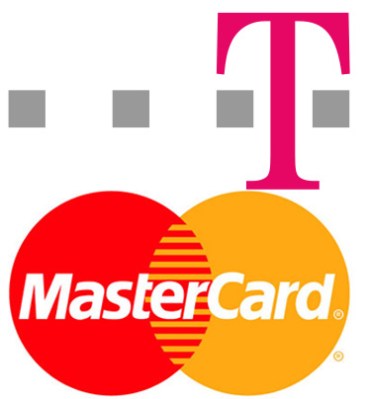Another strong step ahead of mobile payments today: MasterCard and Deutsche Telekom have announced that they will work together to roll out services across DT’s footprint in Europe, starting with an NFC wallet solution in Poland in Q3 and Germany following soon after. For now, the U.S. is not being factored in as part of the deal. In all, Deutsche Telekom has 93 million mobile subscribers in Europe, and 129 million world-wide.
The move is a sign not only of how bigger companies are now stepping up to cooperate better in mobile payments, but the way that carriers are wedging themselves into the equation to make it happen. The deal follows on from news on Friday that France Telecom is also anteing up big time in the area of NFC, and will start rolling out NFC-enabled SIM cards to all new subscribers in France, with further markets getting added on throughout the year.
This service will also be SIM-based, the two companies say. Under the terms of the deal, MasterCard will be working with DT’s payment subsidiary ClickandBuy, which has the e-money license that is necessary to operate mobile payment services.
While Poland looks like it will be a comprehensive roll-out, the German launch later this year will be more gradual: first a trial with mobile phone tags and cards — which will help the service roll out to devices that do not have NFC capabilities built into them; then a mobile wallet service in the first half of next year that will include other banks and partners, before expanding to other markets in the region.
MasterCard emphasized how the latter is bringing payments expertise, while DT, and its mobile brand T-Mobile are bringing the customers.
“This is a huge step on our way to increase mobile payments,” commented Thomas Kiessling, chief product and innovation officer for Deutsche Telekom, at a press event earlier today. “With MasterCard we have a well-known and experienced partner generating growth in this important market segment. We want to build a comprehensive ecosystem around mobile payment, helping Telekom to realize its strategy of being the first choice for customers regarding connected life and work.”
It’s also a sign of how credit card companies realize they have to team up with carriers to put through these innovations, and set a beachhead against mobile payment insurgencies from smaller startups like Square and iZettle.
The tie-up between MasterCard and T-Mobile is one of the bigger partnerships, but it’s not the first to see a carrier looking to do more in mobile payments. Vodafone has tied up with Visa; T-Mobile USA has a deal with Square; AT&T and Verizon both work with Intuit, and in Sweden Telia and iZettle are tied up, with “many more to come,” predicts Thomas Husson, an analyst with Forrester Research.
Angel Dobardziev and Eden Zoller, analysts at Ovum, also note these tie-ups address the problems of huge fragmentation that will need to be resolved before mobile payments have any hope of growing:
“The drive behind Deutsche Telekom’s (DT) mobile payments strategy is to create a comprehensive framework that will address many of the challenges in what is currently an incomplete ecosystem,” they write in a research note. “This is a commendable goal. DT is working to ready the market and strengthen its brand association with financial services by becoming a credit card issuer for MasterCard. DT is looking to improve the retail infrastructure for mobile payments by acting as a sales partner for NFC enabled Point of Sale (POS) terminals. It is providing NFC tags for consumers that do not have NFC enabled devices. DT is also taking a considered, phased approach to service roll out, which is no bad thing, starting in Poland this year and Germany in 2013.”
However, they also note that the real power lies in the execution: It may be “challenging to execute well in so many different areas and across the different geographies that DT operates in,” they write. And that’s before considering competition from the above-named players and others like Apple and Google. Or if anyone even wants these services in the first place.
